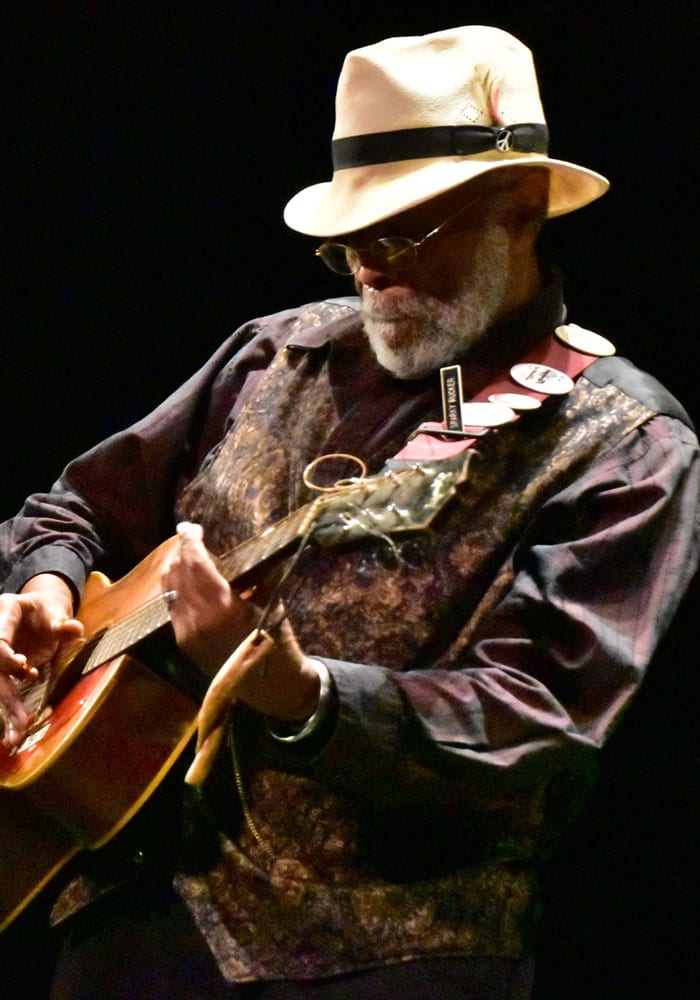James “Sparky” Rucker has been singing songs and telling stories from the American tradition for over 50 years. Internationally recognized as a leading musician, author, storyteller, and historian, he has released 16 music recordings, including a variety of old-time blues, Appalachian music, slave songs, Civil War music, spirituals, work songs, ballads, civil rights music, and originals.
Rucker has performed at the Kennedy Center in Washington D.C. and the Smithsonian Folklife Festival and has also been featured on NPR’s All Things Considered, Prairie Home Companion, Mountain Stage, and Morning Edition. His recording, Treasures & Tears, was nominated for a W.C. Handy Award, and his music is also included on the Grammy-nominated anthology, Singing Through the Hard Times. He has played at major folk festivals, including two American Folk Blues Festivals in Europe, the Gurten-Bern International Festival in Switzerland, and the National Folk Festival in Australia. In 2022, he was honored with the Black Appalachian Storytellers Fellowship. As an author, Rucker was included in anthologies such as Breathing the Same Air, More Ready-To-Tell Tales, and The August House Book of Scary Stories. He also contributed entries for the Encyclopedia of Appalachia and co-wrote a chapter for the storytelling book, Team Up! Tell In Tandem!
While growing up in Knoxville, Tennessee, Rucker began playing guitar at age eleven. He graduated from UT with a bachelor’s in art education from the College of Education, Health, and Human Sciences. He has been involved with the civil rights movement since the 1950s and participated in workshops at the Highlander Center with many prominent people, including Rosa Parks, Myles Horton, and Bernice Reagon. As an activist, he worked with the Poor People’s Campaign and several civil rights organizations. He marched shoulder-to-shoulder with SNCC Freedom Singers Matthew and Marshall Jones and sang at rallies, marches, and sit-ins alongside other folk singers such as Guy Carawan and Pete Seeger. He additionally worked to win recognition and benefits for white Southern Appalachian coal miners as a staff member of the Council of the Southern Mountains in the 1970s.
